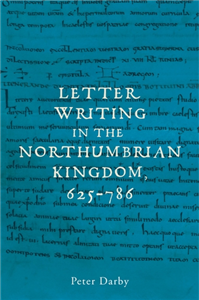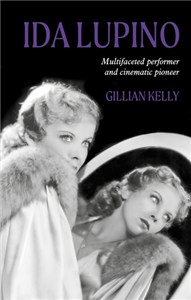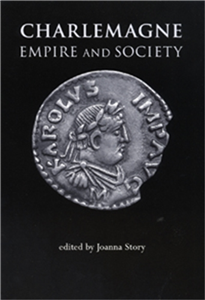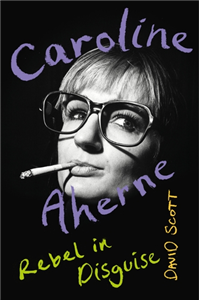Your Search Results
-
Promoted ContentLiterature & Literary StudiesMarch 2021
Thomas Heywood and the classical tradition
by Tania Demetriou, Janice Valls-Russell
-
Promoted ContentPoetryJuly 1904
Paradise Lost
by John Milton
Paradise Lost is an epic poem in blank verse by the 17th-century English poet John Milton. The first version, published in 1667, consisted of ten books with over ten thousand lines of verse. A second edition followed in 1674, arranged into twelve books (in the manner of Virgil's Aeneid) with minor revisions throughout and a note on the versification. The poem concerns the biblical story of the Fall of Man: the temptation of Adam and Eve by the fallen angel Satan and their expulsion from the Garden of Eden. Milton's purpose, stated in Book I, is to "justify the ways of God to men".
-
 Trusted Partner
Humanities & Social SciencesJune 2026
Trusted Partner
Humanities & Social SciencesJune 2026Letter writing in the Northumbrian Kingdom, 625–786
by Peter Darby
Letter writing in the Northumbrian Kingdom offers the first comprehensive study of Northumbria's vibrant epistolary culture in the seventh and eighth centuries. Through a close examination of more than fifty surviving Latin letters-many written by or to figures such as Bede, Acca of Hexham, Ælfflæd of Whitby, and Alcuin -this book uncovers the literary, political, and spiritual dimensions of early medieval correspondence. From royal diplomacy to theological debate, these letters reveal a world where communication was both a practical necessity and a refined art. Drawing on previously underexamined texts and placing Northumbria in its broader European context, this groundbreaking study sheds new light on the role of letter writing in shaping a Christian kingdom's identity, influence, and intellectual legacy.
-
 Trusted Partner
The ArtsDecember 2015
Trusted Partner
The ArtsDecember 2015Classical Hollywood cinema
Point of view and communication
by James Zborowski
This book offers a new approach to filmic point of view by combining close analyses informed by the tools of narratology and philosophy with concepts derived from communication studies. Each chapter stages a conversation between two masterpieces of classical Hollywood cinema and one critical concept that can enrich our understanding of them: Vertigo (Alfred Hitchcock, 1958) and Mr. Deeds Goes to Town (Frank Capra, 1936) are interpreted in relation to point of view; Anatomy of a Murder (Otto Preminger, 1959) and The Man Who Shot Liberty Valance (John Ford, 1962) are considered with reference to the concept of distance; and Letter from an Unknown Woman (Max Ophuls, 1948) and Only Angels Have Wings (Howard Hawks, 1939) are explored through the lens of communication. Each encounter reveals new, exciting and mutually illuminating ways of appreciating not only these case studies, but also the critical concepts at stake. ;
-
 Trusted Partner
Literature & Literary StudiesJuly 2018
Trusted Partner
Literature & Literary StudiesJuly 2018European Erotic Romance
by Victor Skretkowicz, J. B. Lethbridge
-
Family & home stories (Children's/YA)February 1905
Little Women
by Louise May Alcott
Little Women "has been read as a romance or as a quest, or both. It has been read as a family drama that validates virtue over wealth", but also "as a means of escaping that life by women who knew its gender constraints only too well".[6]:34 According to Sarah Elbert, Alcott created a new form of literature, one that took elements from Romantic children's fiction and combined it with others from sentimental novels, resulting in a totally new format. Elbert argued that within Little Women can be found the first vision of the "All-American girl" and that her multiple aspects are embodied in the differing March sisters.
-
 Trusted Partner
The ArtsJuly 2025
Trusted Partner
The ArtsJuly 2025Ida Lupino
Multifaceted performer and cinematic pioneer
by Gillian Kelly
This book contributes to a welcome new wave focusing on the importance of female filmmakers, providing a reappraisal of Ida Lupino, a cinematic figure of significant importance. Given her ability to move between popular and independent cinemas and her status as both a Hollywood star and director/writer/producer of socially relevant films overlooked by the mainstream, Lupino is a particularly interesting case study. Employing a range of critical approaches, including feminist theory, auteur theory and critical theory, this book investigates key themes and motifs that developed across Lupino's unusual and unique career as one of the most significant female players in film history. Investigating her oeuvre as actress, director, writer and producer, it discusses Lupino as a complex and important filmmaker whose career, on both sides of the camera, requires substantially more critical attention than it has been awarded thus far.
-
 Trusted Partner
The ArtsJune 2021
Trusted Partner
The ArtsJune 2021Genre and performance: film and television
by Christine Cornea
Looking at contemporary film and television, this book explores how popular genres frame our understanding of on-screen performance. Previous studies of screen performance have tended to fix upon star actors, directors, or programme makers, or they have concentrated upon particular training and acting styles. Moving outside of these confines, this book provides a truly interdisciplinary account of performance in film and television and examines a much neglected area in our understanding of how popular genres and performance intersect on screen. Each chapter concentrates upon a particular genre or draws upon generic case studies in examining the significance of screen performance. Individual chapters examine contemporary film noir, horror, the biopic, drama-documentary, the western, science fiction, comedy performance in 'spoof news' programmes and the television 'sit com' and popular Bollywood films.
-
 Trusted Partner
Humanities & Social SciencesMarch 2005
Trusted Partner
Humanities & Social SciencesMarch 2005Charlemagne
Empire and society
by Edited by Joanna Story
The age of Charlemagne was a crucible for change in the history of Europe, bridging the divide between the medieval and the classical worlds and setting the political and cultural tone for centuries to come. This book focuses directly on the reign of Charlemagne, bringing together a wide range of approaches and sources from the diverse voices of fifteen of the top scholars of early medieval Europe. The contributors have taken a number of original aproaches to the subject, from the fields of archaeology and numismatics to thoroughly-researched essays on key historical texts. The essays are embedded in the scholarship of recent decades but also offer insights into new areas and new approaches for research. A full bibliography of works in English as well as key reading in European languages is provided, making the volume essential reading for experienced scholars as well as students new to the history of the early middle ages. ;
-
 Trusted Partner
Humanities & Social SciencesJanuary 2013
Trusted Partner
Humanities & Social SciencesJanuary 2013Tyrants of Sicily by Hugo Falcandus
by Graham Loud, Thomas Wiedemann
This book is our principal source for the history of the Kingdom of Sicily in the troubled years between the death of its founder, King Roger, in February 1154 and the spring of 1169. It covers the reign of Roger's son, King William I, known to later centuries as 'the Bad', and the minority of the latter's son, William II 'the Good'. The book illustrates the revival of classical learning during the twelfth-century renaissance. It presents a vivid and compelling picture of royal tyranny, rebellion and factional dispute at court. Sicily had historically been ruled by tyrants, and that the rule of the new Norman kings could be seen, for a variety of reasons, as a revival of that classical tyranny. A more balanced view of Sicilian history of the period 1153-1169 has been provided as an appendix to the translation in the section of the contemporary world chronicle ascribed to Archbishop Romuald II of Salerno, who died in April 1181. In particular the chronicle of Romuald enables us to see how the papal schism of 1159 and the simultaneous dispute between the German Emperor Frederick Barbarossa and the north Italian cities affected the destiny of the kingdom of Sicily. In contrast to the shadowy figure of Hugo Falcandus, the putative author of the principal narrative of mid-twelfth-century Sicilian history, Romuald II, Archbishop of Salerno 1153-1181, is well-documented.
-
 Trusted Partner
Humanities & Social SciencesMarch 2023
Trusted Partner
Humanities & Social SciencesMarch 2023Golden Mummies of Egypt
Interpreting identities from the Graeco-Roman period
by Campbell Price, Julia Thorne
Golden Mummies of Egypt presents new insights and a rich perspective on beliefs about the afterlife during an era when Egypt was part of the Greek and Roman worlds (c. 300 BCE-200 CE). This beautifully illustrated book, featuring photography by Julia Thorne, accompanies Manchester Museum's first-ever international touring exhibition. Golden Mummies of Egypt is a visually spectacular exhibition that offers visitors unparalleled access to the museum's outstanding collection of Egyptian and Sudanese objects - one of the largest in the UK.
-
 Trusted Partner
May 2008
Trusted Partner
May 2008Die Romane
by Marguerite Duras, Ilma Rakusa
Die Suhrkamp-Quarto-Ausgabe versammelt sämtliche Romane von Marguerite Duras, von den Anfängen in den 50er Jahren mit Heiße Küste und Der Matrose von Gibraltar bis zu Der Liebhaber, ihrer Auseinandersetzung mit dem Trauma ihrer Kindheit, und Der Schmerz, dem Protokoll ihres Wartens auf ihren in Buchenwald internierten Mann. Dieser Band bietet im Vergleich zu den Einzelbänden eine Preisersparnis von 69%.
-
 Trusted Partner
Literature & Literary StudiesJuly 2018
Trusted Partner
Literature & Literary StudiesJuly 2018Shakespeare’s histories and counter-histories
by Dermot Cavanagh, Stuart Hampton-Reeves, Stephen Longstaffe
-
 Trusted Partner
March 2002
Trusted Partner
March 2002Die großen Romane
6 Bände in Kassette
by Martin Walser
Martin Walser wurde am 24. März 1927 in Wasserburg am Bodensee geboren. Nach seinem Arbeitsdienst erlebte er das Ende des Zweiten Weltkrieges von 1944 bis 1945 als Soldat der Wehrmacht. Nach Kriegsende machte er 1946 in Lindau am Bodensee-Gymnasium das Abitur und studierte an den Universitäten Regensburg und Tübingen Literaturwissenschaft, Geschichte und Philosophie. Mit einer Dissertation zu Franz Kafka wurde er 1951 in Tübingen promoviert. Von 1949 bis 57 arbeitete er beim Süddeutschen Rundfunk. In dieser Zeit unternahm er Reisen für Funk und Fernsehen nach Italien, Frankreich, England, CSSR und Polen und schrieb erste Hörspiele.1950 heiratete er Katharina Neuner-Jehle. Aus dieser Ehe gingen die Töchter Franziska, Alissa, Johanna und Theresia hervor. Seit 1953 wurde Walser regelmäßig zu den Tagungen der Gruppe 47 eingeladen, die ihn 1955 für die Erzählung Templones Ende auszeichnete. Sein erster Roman Ehen in Philippsburg erschien 1957 und wurde ein großer Erfolg. Walser lebte von da an mit seiner Familie als freier Schriftsteller erst in Friedrichshafen und dann in Nußdorf am Bodensee.
-
 Trusted Partner
October 2020
Trusted Partner
October 2020Turning Men into Pigs and Staying Safe from Such Trickery
A Scientific Foray into the World of Ancient Greek Legends
by Monika Niehaus, Michael Wink
The adventures of Odysseus are not just a classic literary epic but also shine a light on intriguing questions for geography, archaeology and biology. Phenomena like the Cyclops and magic potions were only understood in recent decades thanks to phytochemical and pharmacological research that enabled new insights into the effect of plant substances on the mind and body. Monika Niehaus and Michael Wink embark on an enjoyable excursion in their book on a scientific foray for knowledge – from ancient myths to medieval drug excesses and the world of comics.
-
 Trusted Partner
October 1983
Trusted Partner
October 1983Kleines Adreßbuch für Jerichow und New York. Ein Register zu Uwe Johnsons Roman 'Jahrestage'
Angelegt mit Namen, Orten, Zitaten und Verweisen von Rolf Michaelis
by Uwe Johnson, Rolf Michaelis
Uwe Johnson wurde am 20. Juli 1934 in Kammin (Pommern), dem heutigen Kamien Pomorski, geboren und starb am 22. oder 23. Februar 1984 in Sheerness-on-Sea. 1945 floh er mit seiner Mutter und seiner Schwester zunächst nach Recknitz, dann nach Güstrow in Mecklenburg. Sein Vater wurde von der Roten Armee interniert und 1948 für tot erklärt. 1953 schrieb er sich an der Universität Leipzig als Germanistikstudent ein und legte sein Diplom über Ernst Barlachs Der gestohlene Mond ab. Bereits während des Studiums begann er mit der Niederschrift des Romans Ingrid Babendererde . Reifeprüfung 1953. Er bot ihn 1956 verschiedenen Verlagen der DDR an, die eine Publikation ablehnten. 1957 lehnte auch Peter Suhrkamp die Veröffentlichung ab. Der Roman wurde erst nach dem Tode von Uwe Johnson veröffentlicht. Der erste veröffentlichte Roman von Uwe Johnson ist Mutmassungen über Jakob. Von 1966 – 1968 lebte Uwe Johnson in New York. Das erste Jahr dort arbeitete er als Schulbuch-Lektor, das zweite wurde durch ein Stipendium finanziert. Am 29. Januar 1968 schrieb er in New York die ersten Zeilen der Jahrestage. Aus dem Leben von Gesine Cresspahl nieder. Deren erste ›Lieferung‹ erschien 1970. Die Teile zwei und drei schlossen sich 1971 und 1973 an. 1974 zog Uwe Johnson nach Sheerness-on Sea in der englischen Grafschaft Kent an der Themsemündung. Dort begann er unter einer Schreibblockade zu leiden, weshalb der letzte Teil der Jahrestage erst 1983 erscheinen konnte. 1979 war Uwe Johnson Gastdozent für Poetik an der Johann Wolfgang Goethe-Universität in Frankfurt. Ein Jahr später erschienen seine Vorlesungen unter dem Titel Begleitumstände. Sein Nachlass befindet sich im Uwe Johnson-Archiv an der Universität Rostock. Rolf Michaelis, geboren 1933, hat 1958 über Die Struktur von Hölderlins Oden promoviert. Er war Feuilletonredakteur bei verschiedenen Zeitungen, u. a. langjähriger Leiter des Literaturteils der Zeit. Buchveröffentlichungen u. a. über Gerhart Hauptmann, Heinrich von Kleist, Federico García Lorca und Uwe Johnson.
-
 Trusted Partner
Trusted Partner
-
 Trusted Partner
Trusted Partner
-
 Trusted Partner
Biography & True StoriesMay 2026
Trusted Partner
Biography & True StoriesMay 2026Caroline Aherne
Rebel in disguise
by David Scott
A thoughtful exploration of the work of this unique comedian and writer. Caroline Aherne was one of the most influential and beloved of British comedians. In this book David Scott explores Aherne's comedic artistry and creative legacy, focusing on her iconic characters and ground-breaking TV shows. Scott dives into Aherne's most beloved creations, from the sharp-tongued Mrs Merton to the quietly revolutionary The Royle Family. Drawing on the tales of collaborators and telling behind-the-scenes stories, he provides an intimate glimpse into the creative processes that brought these iconic works to life. At the same time, he examines the social and cultural influences that shaped Aherne's work, from the rich traditions of Northern working-class humour to the experiences of Irish migrants. Aherne's work is celebrated for its sharp wit, warmth and ability to find comedy in adversity. This book offers an exploration and celebration of one of comedy's most inventive minds, revealing how she reshaped the British comedy landscape.
-
 Trusted Partner
Humanities & Social SciencesMay 2020
Trusted Partner
Humanities & Social SciencesMay 2020Beginning classical social theory
by Marcel Stoetzler, Peter Barry





























